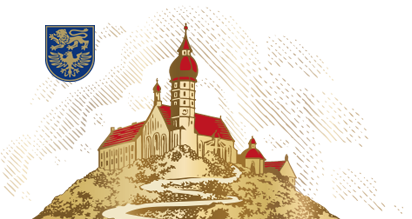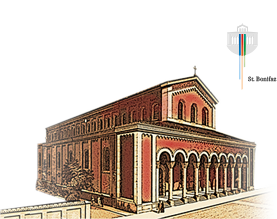Contact
Markus Zwingenberger
Leitung
| Address: | Bergstraße 2 |
| City: | 82346 Andechs |
| Telephone: | +49 8152 376 166 |
| E-mail: | to contact form |
Ecological agriculture and forestry
In keeping with the mandate to preserve creation, especially in monastic agriculture, and to continue the Benedictine tradition, we converted our farming operations to organic agriculture in 1995.
It follows the guidelines of the Naturland association that require the prudent and measured association with nature.
The monastery’s farming operations encompass 100 ha of agricultural crop land, 25 ha of meadows and pastures, 15 ha of yard areas and bodies of water, and 170 ha of forests.
Spelt, rye, oats and clover/grass mixtures are grown on the crop land. All of the bread grains are purchased by the Hofpfisterei in Munich, where they are used to make the Andechs spent grains bread among other products. Parts of the grasslands are leased. The meadow orchards around the monastery are part of the agricultural operations as well.
The region gets about 1,000 mm/m² of precipitation per year with an average annual temperature of 7.2 degrees Celsius. Soil conditions range from alluvial deposits on the Alte Ammer to gravel soils to muck. On a 100-point scale, the soil fertility is in the range of 35-45 points. The stock barns are leased to a local farmer.
Sustainable agriculture
Another sphere of activity is the cultivation and management of the monastery’s 170 ha of forests according to the certified and sustainable forest management practices of the PEFC (Pan European Forest Certification) system.
“Ökologie auf Kirchengrund” (ÖAK) working group
The Andechs Monastery’s agricultural operations are part of the “Ökologie auf Kirchengrund” working group.
This working group established in 2005 is an association of monasteries and church institutions in Bavaria that operate ecological agriculture and/or horticulture enterprises. In 2008, the working group was opened to church institutions that use renewable energy sources at their sites.




